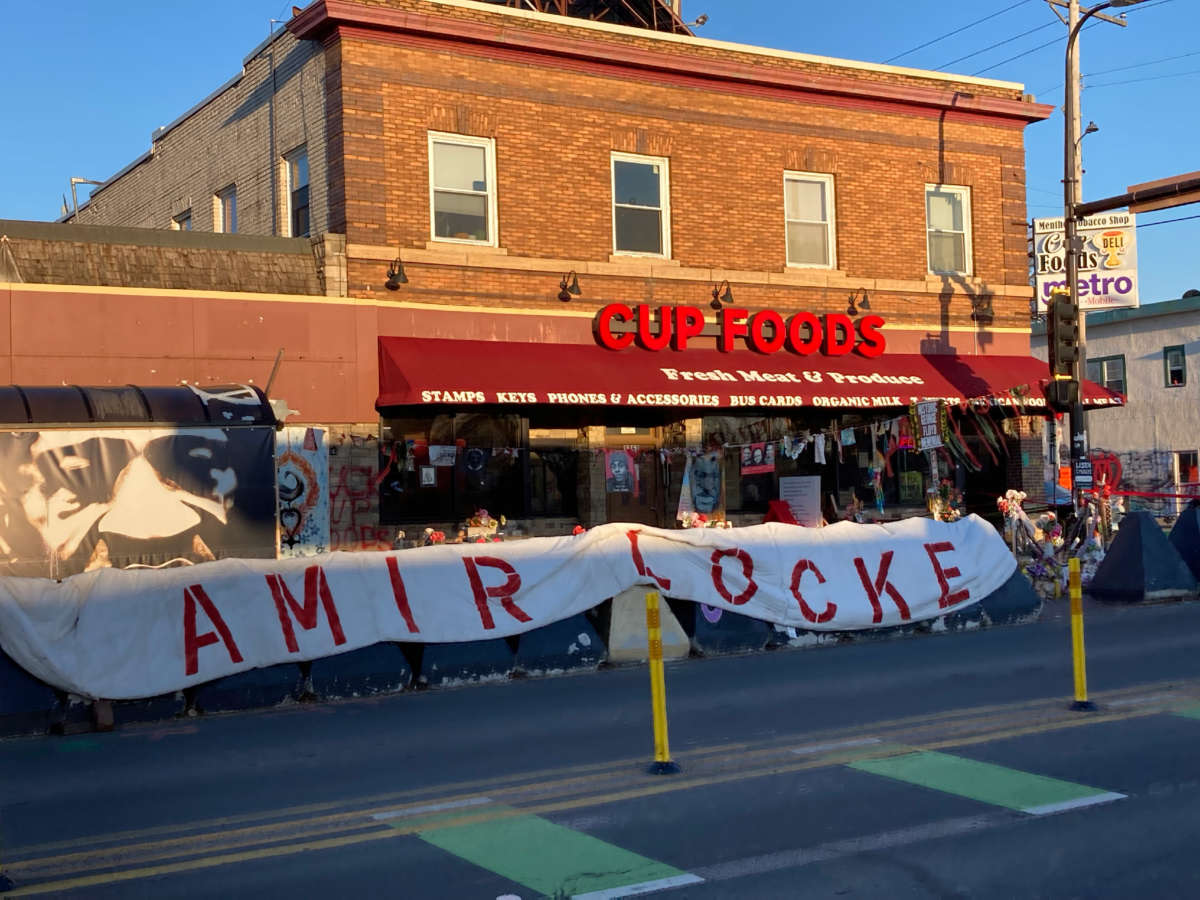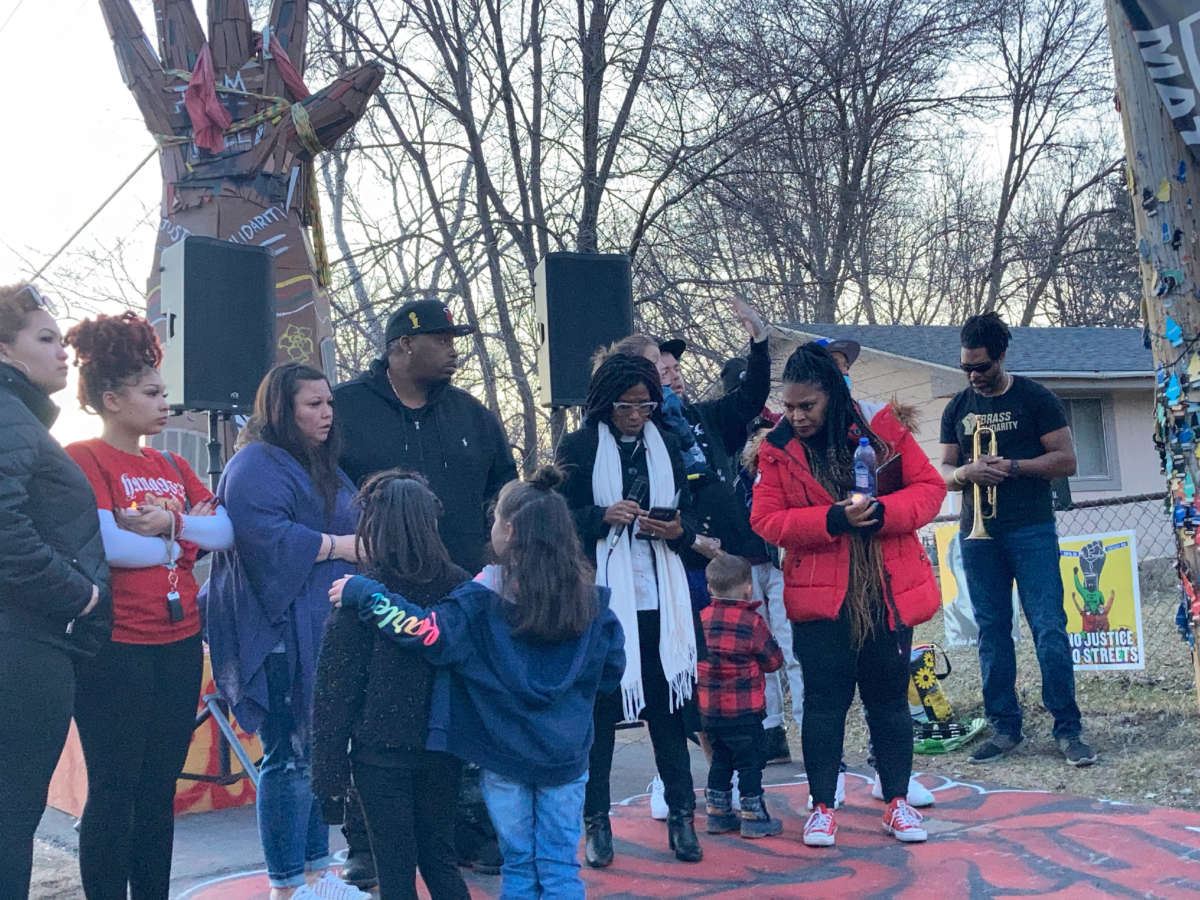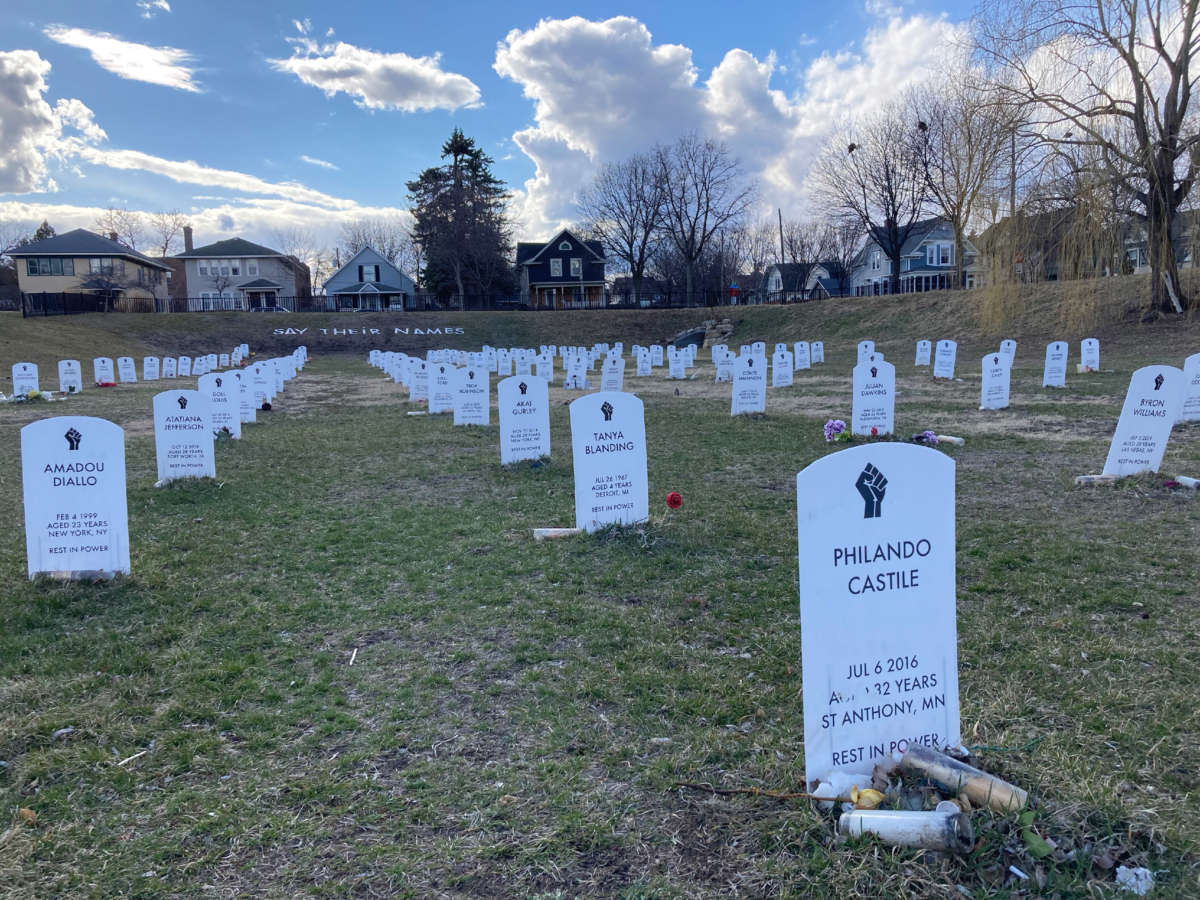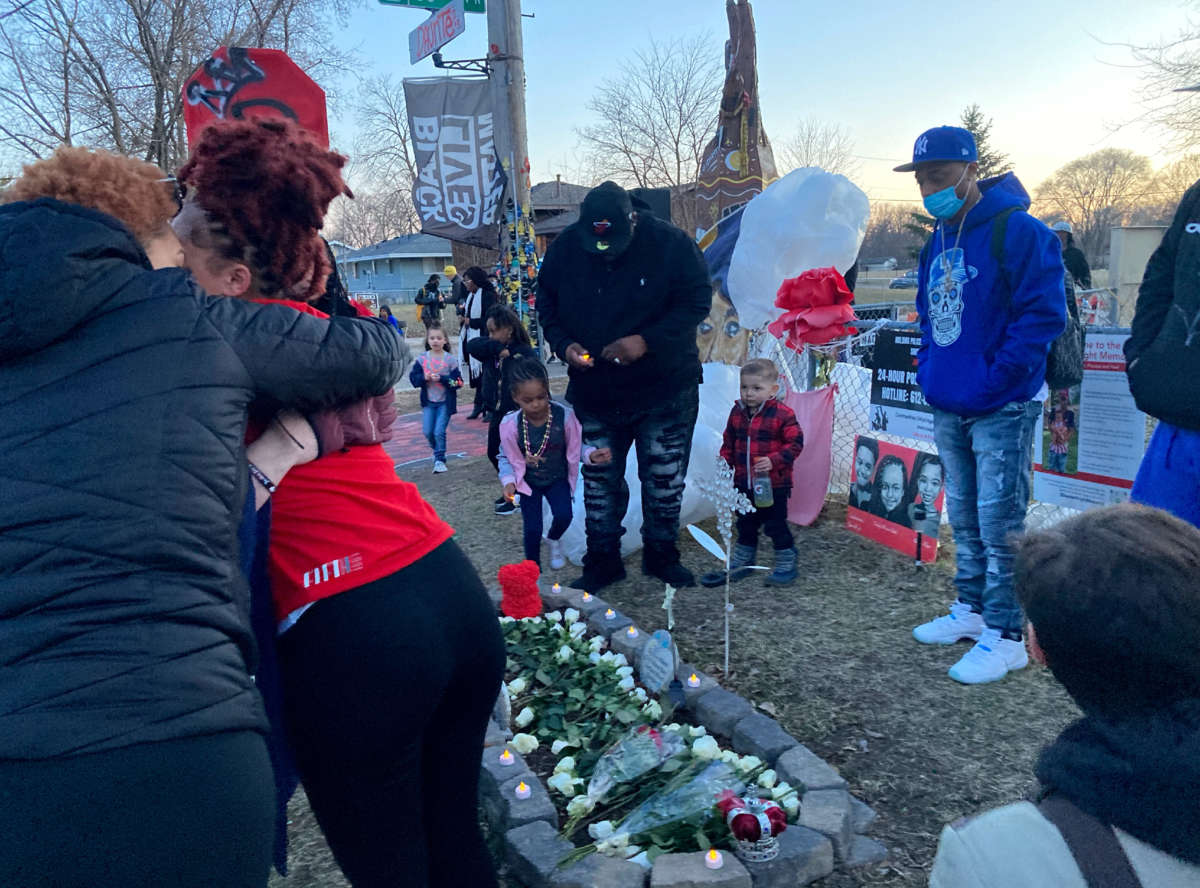Part of the Series
The Road to Abolition
About 100 people gathered in the Brooklyn Center neighborhood north of Minneapolis on Monday to honor Daunte Wright one year after the young Black man was shot and killed by local police officer Kim Potter on April 11, 2021. Potter shot Wright during a traffic stop and was convicted of manslaughter and sentenced to two years in prison after claiming that she mistook her gun for her taser before shooting.
Wright’s killing set off a wave of protests and unrest in the suburb less than a year after the murder of George Floyd by police on a crowded Minneapolis street corner sparked a nationwide uprising against systemic racism and police violence.
On Monday, after a moment of silence marking the 20 years of Wright’s life, his immediate family placed candles on a memorial that now stands where Wright crashed his car and died after being shot.
Jeanette Rupert, a reverend, nurse and activist from Minneapolis who has supported families of those slain by police, told the crowd that change is being made through Wright’s legacy, and his life will not be forgotten.
“We will continue to make change and use our gifts to implement change,” Rupert said. “What are you going to do to make sure this family stays uplifted, and other families of stolen lives?”
About 10 miles away, the intersection where Floyd was brutally murdered by former officer Derek Chauvin as other cops looked on — and the birthplace of an uprising that would spread across the nation — remains a permeant memorial and meeting space free of police.
Banner and signs with Amir Locke’s name have been added to “George Floyd Square” since early February, when the 22-year-old became the latest victim of police violence in Minneapolis after being shot and killed by a SWAT team during a no-knock raid on an apartment where he was sleeping on the couch. Locke was not a subject of the police investigation and was sleeping while holding a gun he owned legally. Body camera footage of the raid and deadly shooting, along with an initial press release from police that wrongly identified Locke as a suspect, has enraged the community for weeks.

The level of trauma suffered by the people of Minneapolis and its Black community in particular is palpable around the corner from George Floyd Square, where dozens of mock gravestones with the names of Black people killed by police across the country fill a large green space. Breonna Taylor, Philando Castile, Amir Locke, Sandra Bland, Tanya Blanding, Troy Robinson, Atatiana Jefferson… the list goes on.
George Floyd Square remains central to the movement in Minneapolis, and organizing meetings for activists and community members are regularly held there twice a day. Local activists told Truthout the meetings are an important organizing hub that has inspired multiple grassroots projects across a city that has emerged as a leader in the movement to end racist policing and violence.
The movement remains strong in Minneapolis despite dwindling media coverage, political setbacks and right-wing backlash to the Black Lives Matter movement on the national stage.

Protesters responded to the killing of Locke by taking to the streets in the middle of winter, and residents of the city have spent the past two years debating proposals to defund and abolish the police department, raising deep questions about the systemic roots of poverty and violence, and who feels safer or less safe with police around, and why.
In November, Minneapolis voters rejected a ballot initiative that would have dissolved the Minneapolis Police Department into a new public safety department offering a slate of services and responders besides armed police. Proponents said the initiative would have removed institutional barriers to reappropriating police funding and directing it to other services, such as trained experts to respond to a mental health crisis or drug overdose instead of police.
Supporters said the debate over the ballot question was marred by misinformation but still received 60,000 or about 43 percent of votes. Minneapolis Mayor Jacob Frey, who opposed the ballot question and has weathered blistering criticism for failing to prevent police violence, clung to office by a narrow margin after being challenged by two progressives who supported the proposal.

Facing mounting pressure from activists over the failure of previous reforms to prevent the death of Locke and statements allegedly misrepresented changes to the city’s no-knock warrant policy, Frey recently placed a ban on no-knock warrants, which typically involve a team of police barging into a residence unannounced. However, under the new policy, police can still enter a residence after knocking repeatedly, announcing their presence and waiting 20 seconds during daytime hours or 30 seconds at night, according to reports.
Twin Cities activists remain frustrated by the pace of reform, and mistrust between residents (and especially residents of color) and the police remains high. However, activists are also building new forms of community safety without police, such as a crisis hotline that connects people with community resources and/or responders trained in first aid and mental health care. Regular meetings at George Floyd Square provide a space for coming together and organizing such efforts without waiting on politicians to act.
Back in Brooklyn Center, the friends, neighbors and activists who had gathered for Wright’s one-year memorial finished their prayers and released balloons into the evening sky after chanting Wright’s name three times. The sense of hope and togetherness was palpable; as Rupert explained, Wright lives on through his family and the “change-makers” who continue to organize for substantial police reform in Minnesota despite defeat at the ballot box in November. As the memorial came to an end, old-school hip-hop hits blared through speakers, and people formed lines and began dancing together in the street.
48 Hours Left: All gifts to Truthout now matched!
From now until the end of the year, all donations to Truthout will be matched dollar for dollar up to $28,000! Thanks to a generous supporter, your one-time gift today will be matched immediately. As well, your monthly donation will be matched for the whole first year, doubling your impact.
We have just 48 hours left to raise $28,000 and receive the full match.
This matching gift comes at a critical time. As Trump attempts to silence dissenting voices and oppositional nonprofits, reader support is our best defense against the right-wing agenda.
Help Truthout confront Trump’s fascism in 2026, and have your donation matched now!
